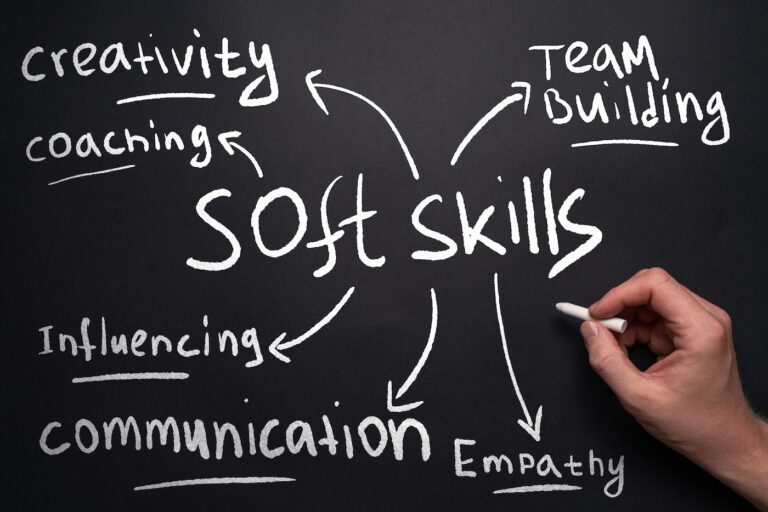Making the decision to become an entrepreneur can be overwhelming at times, particularly if you’re deciding to completely reinvent your working life. Being an entrepreneur means becoming comfortable with the highs and lows that are common in this type of work environment – being able to be both flexible and adaptable is essential to the success of any entrepreneur. Aiman Kabli, digital entrepreneur, serial author, blogger, and speaker, provides SMEToday readers with some insight.
Once you’ve decided to become an entrepreneur it can become especially tempting to focus all your attention on building your ‘hard skills’ like technical skills, analytical skills, and management skills; all of which are fundamental to the success of an entrepreneur.
However, they’re not the only pieces of the puzzle. Along with the cultivation of ‘hard skills’, entrepreneurs must take time to further the development and application of their ‘soft skills’, if they want to become well-respected and highly sought-after entrepreneurs that can withstand the pressures of the business world.
What are ‘soft skills’?
‘Soft skills’ often provide the foundational backbone of any strong entrepreneur, even if they don’t discuss it or even realise that this is the case. Skills that can be considered ‘soft skills’ are basic self-care skills, personal growth skills, and spiritual practice. These ‘soft skills’ enable a person to ride the emotional and financial rollercoaster that comes with being an entrepreneur.
Over the last seven years, I have had the privilege of speaking at numerous engagements as a mentor, speaker, judge, consultant, panellist, lecturer, and coach on the topic of enabling and supporting entrepreneurship culture around the world.
Through advising tech start-ups and investors, I’ve witnessed the power of ‘soft skills’ in helping with the growth of an organisation. This is often because humans will innately respond to an individual who is effective at using emotional maturity skills as well as personally keeping an entrepreneur strong through the ups and downs of entrepreneurial life.
‘Soft skills’ allow an individual to flourish at a personal level which then can then transmute into their professional life, encouraging the benefits for not only themselves but their team and their organisation also. Therefore, it’s really important that you begin working with and learning ‘soft skills’ in your personal life before you bring it into the professional hemisphere.
How I developed my ‘soft skills’ and how they enhanced my entrepreneurial journey
The first step to developing ‘soft skills’ is being comfortable with going ‘back to basics’. Consider how well you’re taking care of yourself at the present time. Are you eating the right kind of food? Are you getting enough sleep? Do you have a regular exercise routine?
This may seem oversimplified, but these aspects of caring for oneself open the door to being able to be more present and more solution-driven in your working life. An easy way of understanding this is to consider a worker running on four or five hours of sleep a night – how effectively do you think this individual is at solving any problems they may face in their professional life? Do you think they would be able to pre-emptively notice a potential problem and address it? The chances are significantly reduced because their energy levels are going to be lacking which has a direct impact on cognitive ability.
Once basic self-care has been mastered, you can begin to take the next step in personal growth development. Take time to read about new trends in your industry or sector or unwind with a documentary that interests you. I have been privileged to have much of my personal development growth come from the travel that has been necessary for growing myself as an entrepreneur. Taking in different cultures, seeing different points of view, and constantly learning and adapting to my surroundings have hugely transferred into my work as a serial entrepreneur.
I have also been aided by spiritual practice. Spiritual practice can look different from person to person, but reading scripture, meditation, yoga, journaling, daily affirmations, introspection, or daily gratitude practice allows you to clear the mind and increase your ability to be flexible when it comes to problem-solving.
Developing ‘soft skills’ really sets you up for success, as your resilience to working in a constantly shifting environment grows. Problem-solving becomes fun and understood as an integral part of your success, which in turn minimises the fear that can come hand-in-hand with change.
 It may appear that the development of ‘soft skills’ is too easy or too basic and that the focus should be shifted to understanding cash flow or developing and understanding new technology that can help with your career. However, if you don’t have healthy and stable habits in your personal life, you cannot expect them to suddenly appear fully formed in your professional life.
It may appear that the development of ‘soft skills’ is too easy or too basic and that the focus should be shifted to understanding cash flow or developing and understanding new technology that can help with your career. However, if you don’t have healthy and stable habits in your personal life, you cannot expect them to suddenly appear fully formed in your professional life.
Like everything, learning how to be an effective communicator, how to build emotional resilience, and how to face rejection without crumbling – are all skills that are fundamental to the success of an entrepreneur, and they are all ‘soft skills’.
In the current ‘self-care’ boom of buzz words surrounding affirmations or spirituality, it may feel like spending time on this kind of personal development has no place in the business world. It is, in fact, the complete opposite. These skills are how you succeed in business.
Aiman Kabli is a digital entrepreneur, serial author, blogger, and speaker. Aiman is the founder and Movement Leader of a global movement to advocate for embodying the lifestyle of success and fulfilment, FELS (Flourishing Entrepreneurial Lifestyle). He is also co-founder and COO of the virtual startup accelerator platform, eleva8or, and is co-founder of various apps and web platforms.

